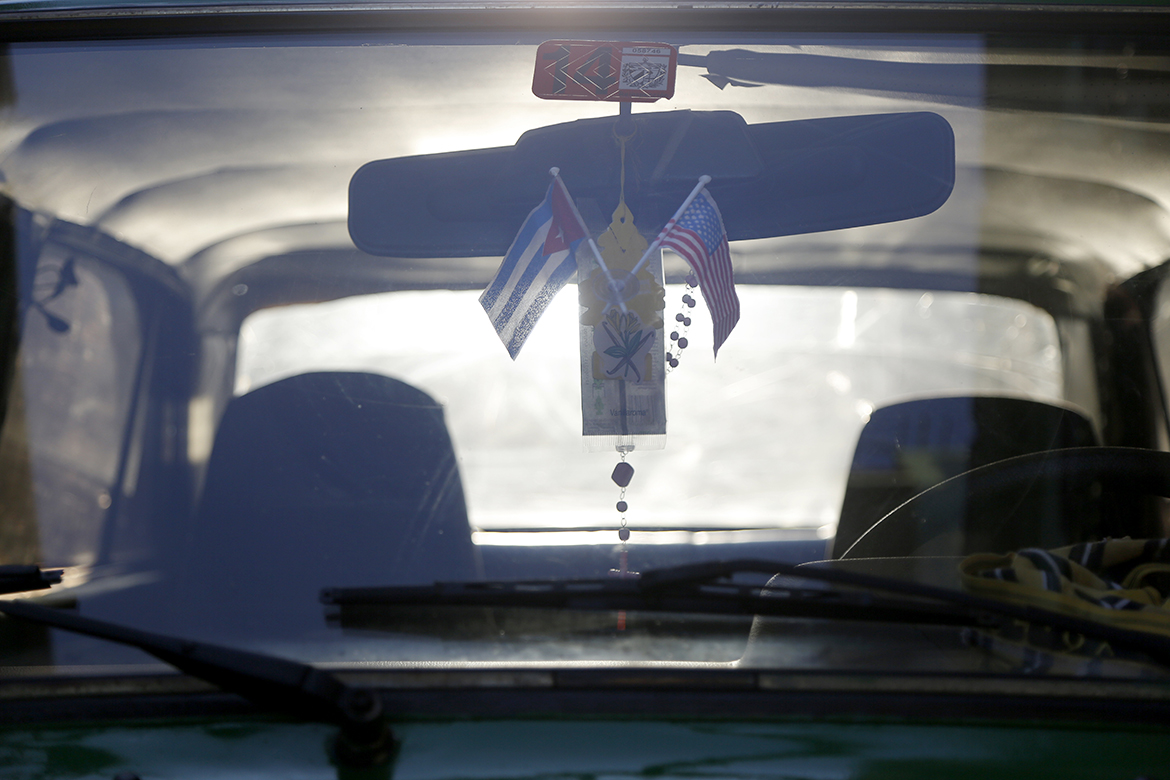Golden rays of the rising sun bounce off the pavement and illuminate the rows of façades. Flashes of light reflect off the chrome grills of taxis as they fly by. People bustle to work, while others sit on the front steps and observe. Lines form in front of street-side cafeterias as the smell of breakfast fills the air.
It’s another morning in Havana...
The Workers
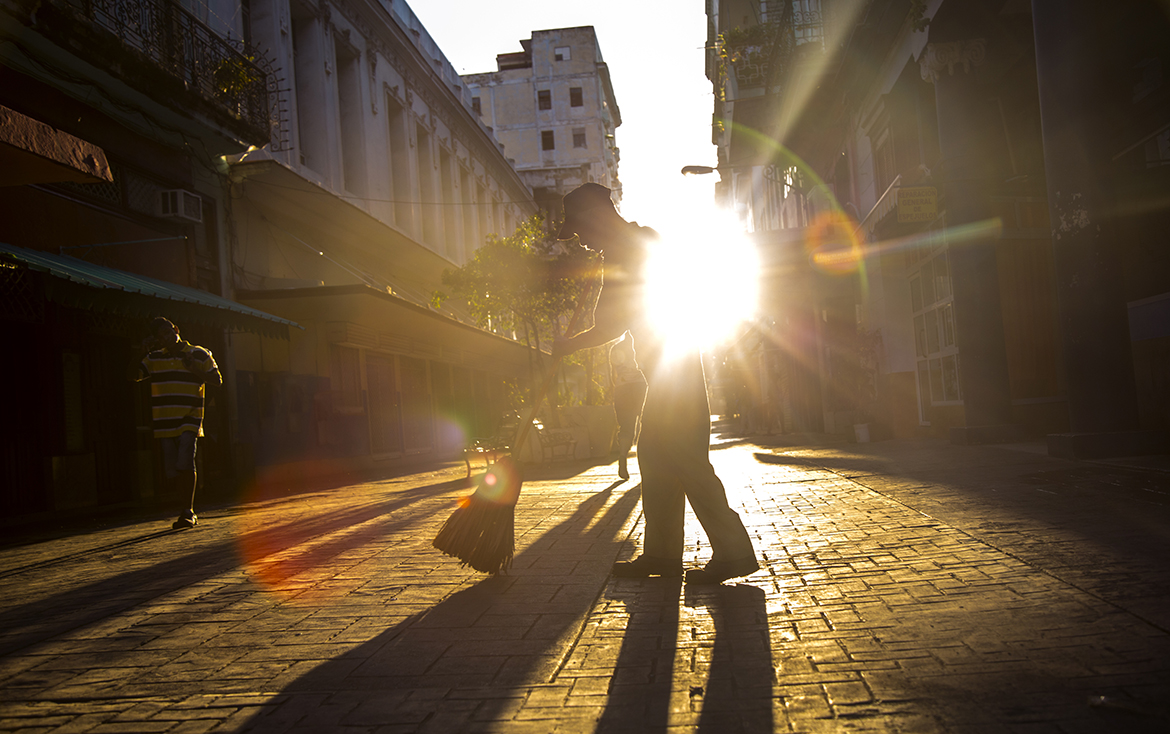
El habito no hace al monje
The workers of Cuba all have a story. A story of struggle, hard work and survival.
“The maximum wage in Cuba is 40CUC a month (1CUC = $1USD); the average rent in Havana is 35CUC a month,” a tour guide explained. “You do the math!” In Cuba’s brand of Communist socialism, citizens need very little money because the government provides and subsidizes necessities. However, this theory of government support has not manifested itself as hoped. A walk through Havana neighborhoods and a bus ride across the island-country show that the system has failed the people.
“I left my job as an accountant to work as a taxi driver,” one taxi driver recalled. Everything is backwards. I make much more money with tourists than as an accountant,” he explained. Finding a doctor driving a taxi for a living is not that unusual in Cuba.
Jobs in the tourist sector, as well as certain highly visible blue-collar jobs, are some of the best paying jobs in the country. “A street sweeper is one of the most well paying jobs in the city. It’s better than a doctor,” said a man who works as a delivery worker. In recent years, there has been a large influx of people leaving “white collar careers” to work at lower skill jobs because they pay more.
Making ends meet is a struggle for many Cubans. “Almost everyone hustles here,” the tour guide continued. “How else can you get by?” With salaries capped between 30-40CUC a month, one job cannot support a family. People are forced to moonlight, work two jobs or sell goods on the side, be it selling marked up cigars, Internet cards or even food.
Photos below: From selling cigars to fixing cars to delivering goods the streets of Havana are filled with workers of every walk of life. Because of the weak economy, jobs that are traditionally well paying don’t pay enough and workers are unable to make ends meet. As a result, many people work multiple jobs or work on an “off the record market” of hustling and selling goods.
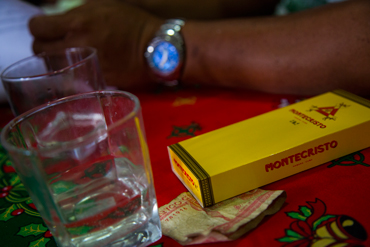
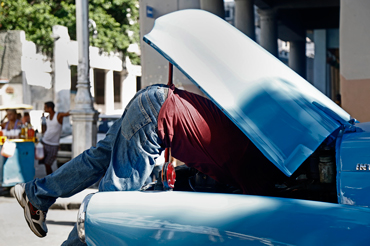
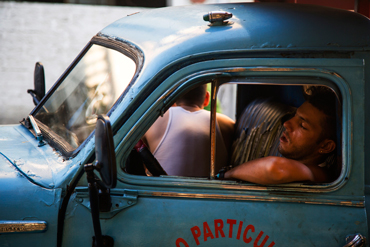
A Singular Economy
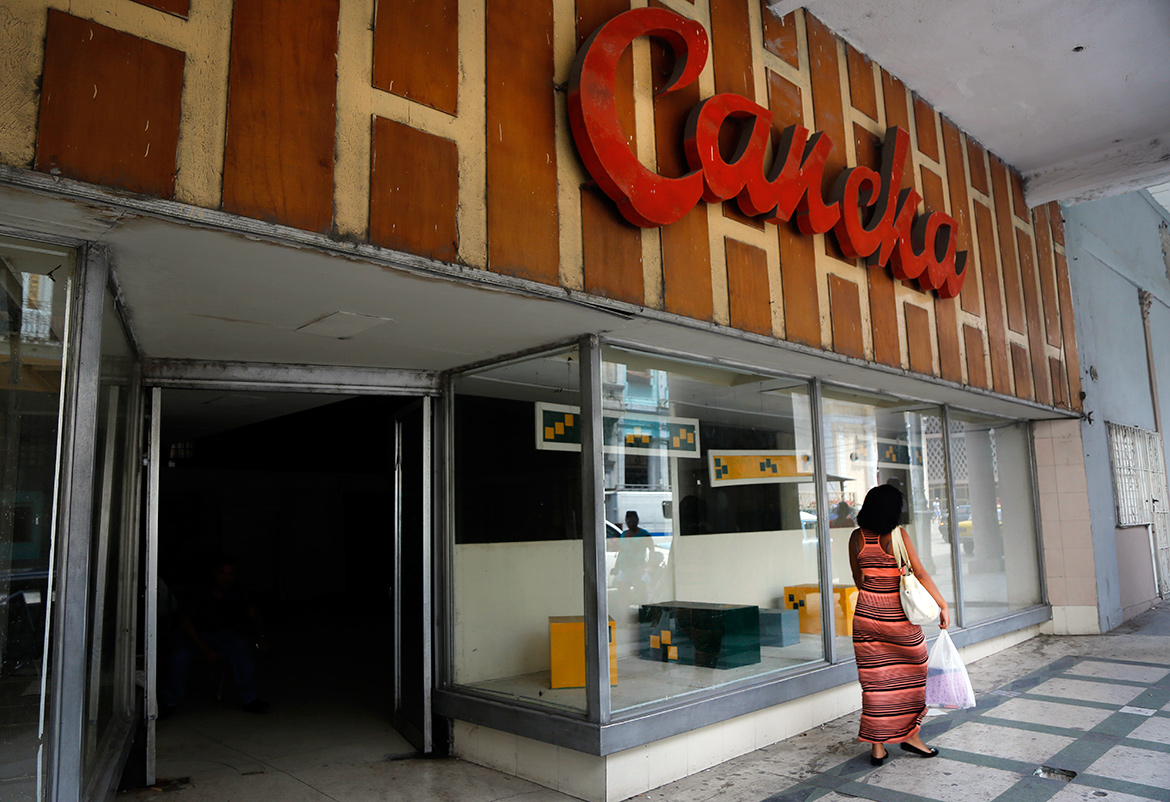
Empty shelves; long lines
The streets of Havana are noticeably void of billboards and advertisements. It’s hard to differentiate between retail stores and abandoned buildings. Commerce is not booming in Havana. In fact, until 2013, private businesses were illegal. The Cuban Government actually owned part of every “commercial” establishment in the country. As a result of the Communist economic model, competition between brands and stores is limited at best. For example, there is a single beverage provider for the entire country. When buying water or soda there’s not need for a price or taste comparison: there is only one option.
The state of the economy was exhibited by department stores on one of the busiest streets in Havana. Empty storefronts, vacant shelves and limited merchandise characterized the city’s busiest stores and signal a struggling economy that reaches far beyond store fronts.
Since the Economic Embargo of 1961, Cuba has been virtually excluded from the Western economy and market. As other countries progress and develop, Cuba has been limited by the strict economic embargo. As a result, the singular economic philosophy of Cuba has not flourished and has instead created a weak economy characterized by an unstable job market and currency.
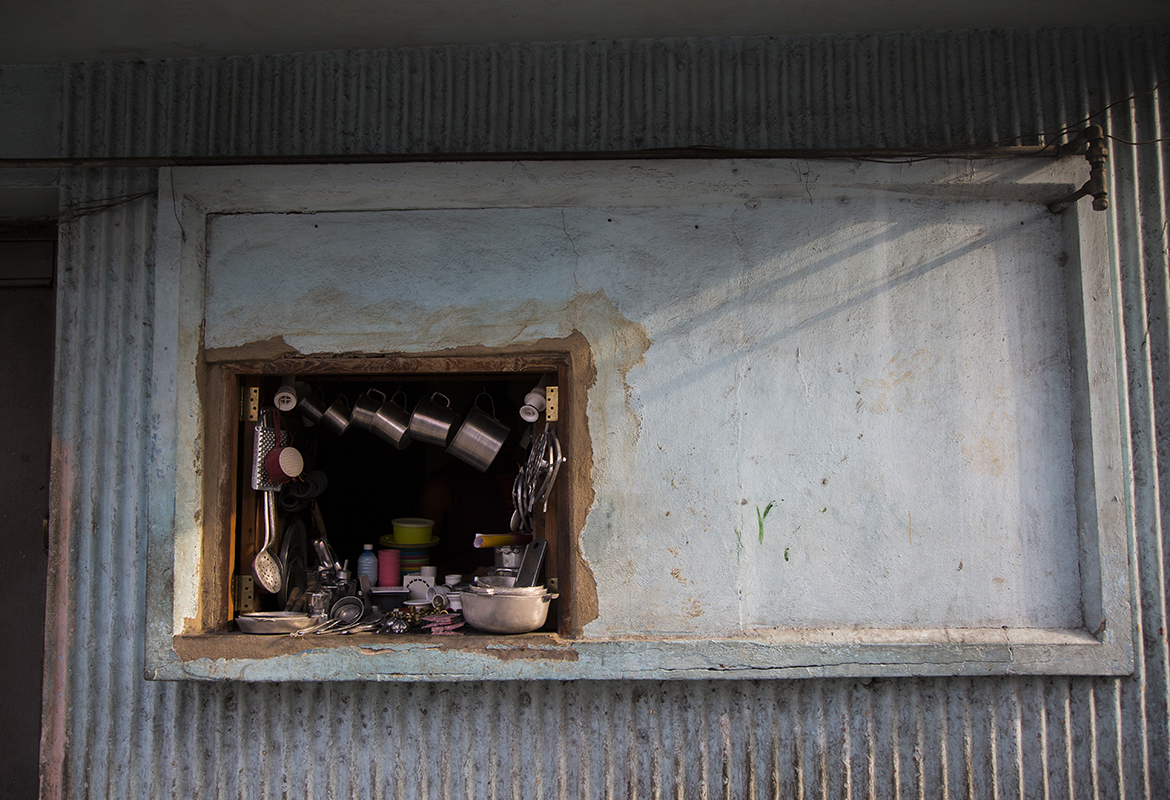
Empty shelves are not uncommon in the main super markets in Centro Habana. Due to tight trade restrictions, it is difficult to provide a large assurance of goods, as items have to be produced in country or imported from foreign countries.

A Disconnected World
Communication technology is not a common public-good
The combination of economic sanctions and strict government control has put Cuba far behind the technology boom of the last half-century. Strict government control has restricted Internet and phone service to a single government-owned agency that provides the citizens with extremely limited access. In downtown Havana, Internet is scarce and the lines at pay phones are long.
In Centro Habana on the corner of Calle Galiano and Boulevard de San Rafael is a small city park, about half a city block, full of benches. At any time of day or night there are hundreds of people in the park huddled over their cell phone or laptops. Almost everyone is there for one common reason – WiFi Internet access.
For 3CUC/hr (1CUC = $1USD), Internet access can be purchased – this is a rarity in Cuba. Internet cafes are almost exclusively the domains of high-end hotels, with exorbitant hourly rates. Internet in the home is almost nonexistent. This park is one of a few in the city with public Internet. As a result, there is a constant flow of people of nearly every demographic seeking connection.
It is generally understood that Internet service in the park is censored, controlled and monitored by the government, yet people flock to the park to connect to relatives who live abroad, and check their social media. On an island with few exits, the park is an escape.
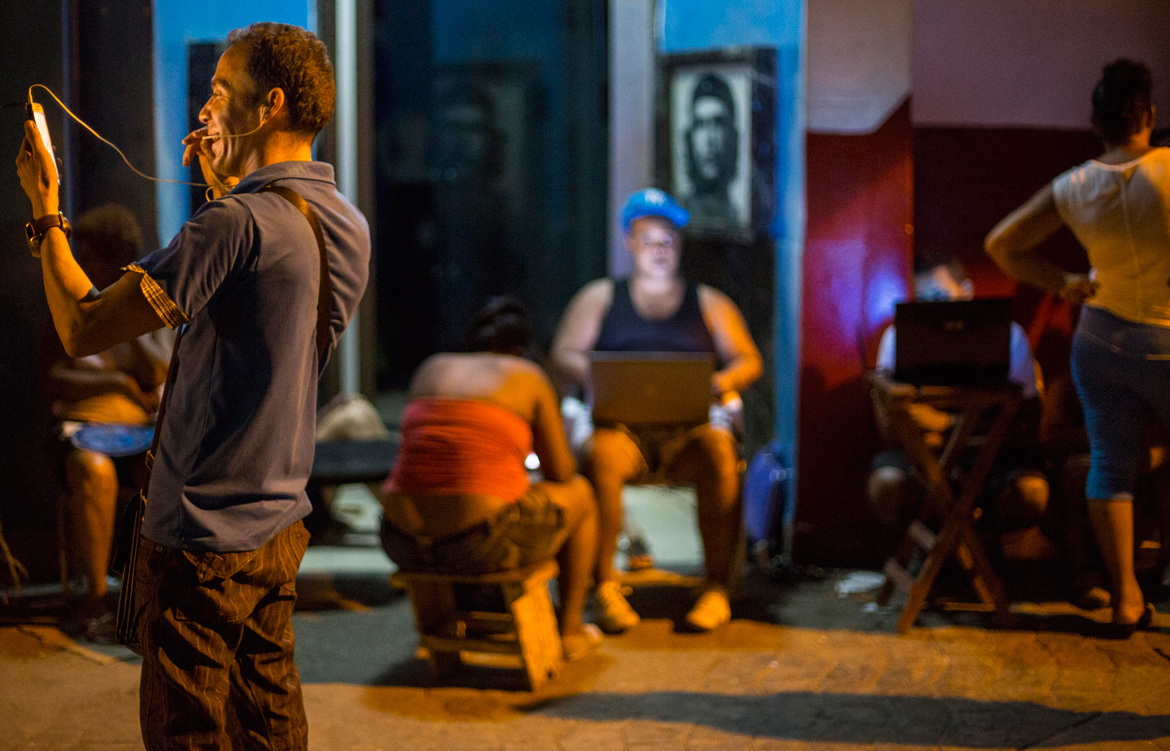
A New Unity
“In Cuba; we call that hope."
On August 14, 2015 as the American Flag was hoisted up the flagpole of the US Embassy for the first time in 54 Years, the streets erupted in cheers and applause. History had been made in Cuba. The mixture of excitement and uncertainty of the future made it clear that this had been a long time coming. The energy from both Americans and Cubans standing together showed the people of both countries were ready to be begin making amends and reestablishing a healthy relationship.
Following the event at the Embassy, a patriotic air filled the city. The Cuban flag flew proudly throughout the city, along with American flag - a rare site in Cuba.
Many taxi drivers hung an American flag from their rearview mirror. “In Cuba; we call that hope,” said one taxi driver. “We hope that our countries will become friends soon.”
The pride of the Cuban people was palpable. Many were excited for a new future relationship not because they wanted to leave Cuba, but because they wanted to share with America; a chance to grow economically and culturally. Cuban patriotism was viral throughout the city.
With over 80% of the island’s population educated with university degrees, the economic potential of Cuba is immense. The lifelong dream of many Cubans is that government controls would be softened, economic sanctions would be lifted, and relationships with the US restored.
On this day, it felt to many that their dreams were on their way to becoming realities. They could feel that their country was on the brink of a monumental and exciting change.
